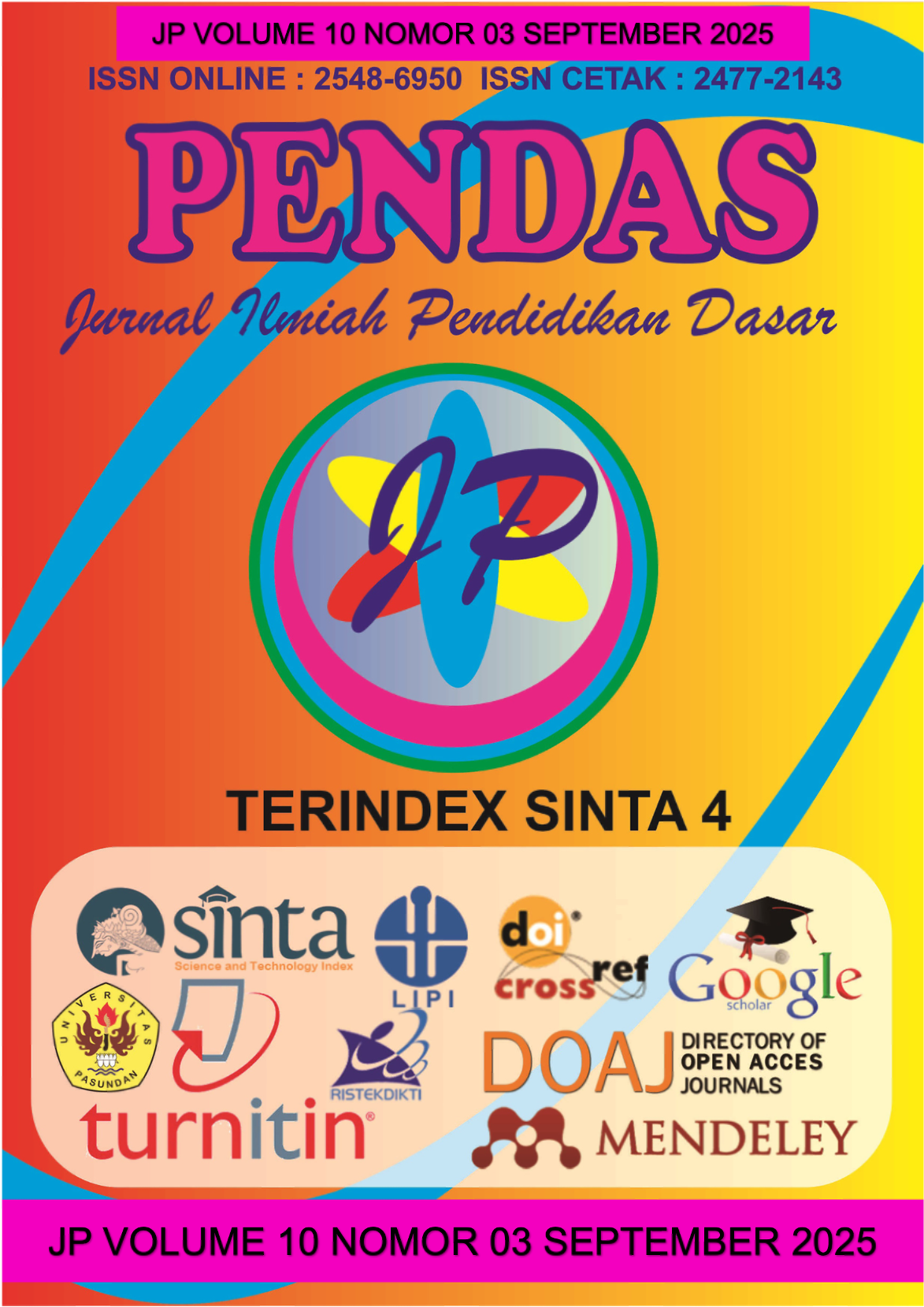efektivitas EFEKTIVITAS MOBILE LEARNING BLOOKET TERHADAP HASIL BELAJAR BAHASA INDONESIA SISWA KELAS VIII DI SMPN 4 BISSAPPU KABUPATEN BANTAENG
DOI:
https://doi.org/10.23969/jp.v10i03.30305Keywords:
Effectiveness, Mobile Learning Blooket, IndonesianAbstract
Rahmat Kurnia, 2025. The Effectiveness of Mobile Learning Blooket on Indonesian Language Learning Outcomes of Class VIII Students at SMPN 4 Bissappu, Bantaeng Regency. Thesis, Educational Technology Study Program, Faculty of Teacher Training and Education, Muhammadiyah University of Makassar. Supervisor I Mr. Kasman and Supervisor II Mr. Wahyuddin. This study aims to determine the effectiveness of mobile learning blooket on Indonesian language subjects in class VIII of SMPN 4 Bissappu. This type of research is quantitative or experimental research (true experimental) using Pretest-Posttest Control Group Design, The population in this study were all students of SMPN 4 Bissappu consisting of 3 classes, a total of 78 people. The sample in this study were two classes from 3 existing population classes. One class as an experiment and one class as a control class. The two classes are: classes VII and VIII, where VIII is the experimental class and class VII is the control class, selected through Purposive Sampling. Data collection techniques in this study are observation, testing, and documentation. The results of this study indicate that mobile learning blooket in Indonesian language subjects is effectively used in class VIII of SMPN 4 Bisappu. The calculation results show a value of t count = 10,037 and a value of t table = 1,720. based on the testing criteria if t count ≥ t table then HO is rejected and Hi is accepted. With the calculation results t count ≥ t table or 10. 037 ≥ 1,720 thus Ho is rejected and Hi is accepted. This proves that the use of mobile learning blooket in class VIII of SMPN 4 Bisappu is effective in the learning process. Compared to using conventional learning models.
Downloads
References
Abubakar, Rifa‟i. 2021. Pengantar Metodologi Penelitian. Yogyakarta. Suka- Press Uin Sunan Kalijaga.
Abdullah, K. dkk. 2022. Metodologi Penelitian Kuantitatif. Aceh: Yayasan Penerbit Muhammad Zaini.
Ainia, Dela Khoirul. 2020. Jurnal Filsafat Indonesia: Merdeka Belajar dalam Pandangan Ki Hadjar Dewantara dan Relevansinya bagi Pengembangan Pendidikan Karakter, (Online), Vol.3, No. 3 (https://ejournal.undiksha.ac.id/index.php/JFI/article/view/24525/16362, diakses pada 08 Juni 2024).
Daniyati, A. dkk. 2023. Journal of Student Research (JSR): Konsep Dasar Media Pembelajaran. (Online), Vol.1, No. 1. (https://ejurnal.stie-trianandra.ac.id/index.php/jsr/article/download/993/798/, diakses pada 09 November 2024).
Hardani, dkk. (2020). Buku Metode Penelitian Kualitatif dan Kuantitatif. Yogyakarta: CV. Pustaka Ilmu
Group.Nainggolan, N. dkk. 2024. Jurnal Ilmiah PGSD FKIP Universitas Mandiri: Penerapan Media Games Blooket Pada Mata Pelajaranpendidikan Pancasila Untuk Meningkatkan Hasil Belajarpeserta Didik Kelas Iv Di Sdn 066050 Medan. (Online), Vol. 10, No. 03. (https://journal.stkipsubang.ac.id/index.php/didaktik/article/view/3834/281 6, diakses pada 09 November 2024).
Setyosari, P. 2014. Jurnal Inovasi dan Teknologi Pembelajaran: Menciptakan Pembelajaran Yang Efektif Dan Berkualitas. (Online), Volume 1, No. 1, (file:///C:/Users/Lenovo/Downloads/joki/Skripsi%20Rahmat/Jurnal%20S etyosari.pdf, diakses pada 14 Januari 2025).
Downloads
Published
Issue
Section
License
Copyright (c) 2025 Pendas : Jurnal Ilmiah Pendidikan Dasar

This work is licensed under a Creative Commons Attribution 4.0 International License.



















